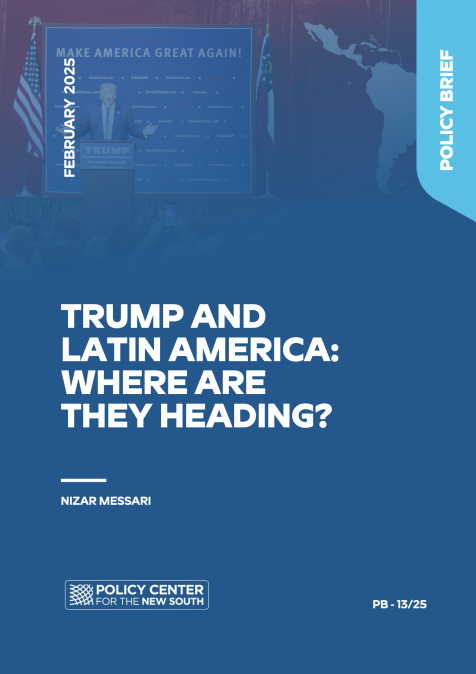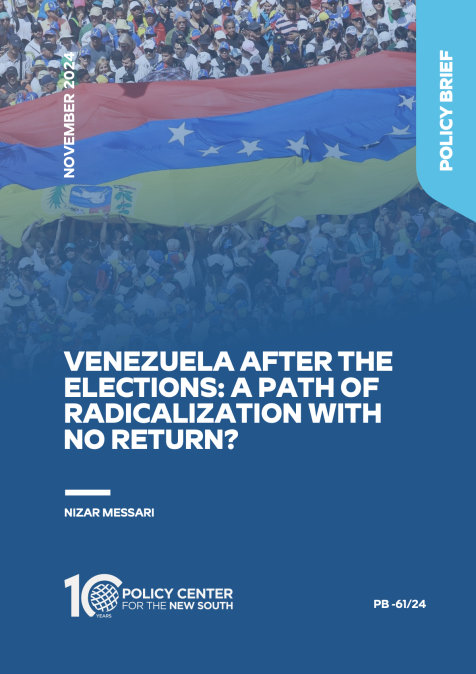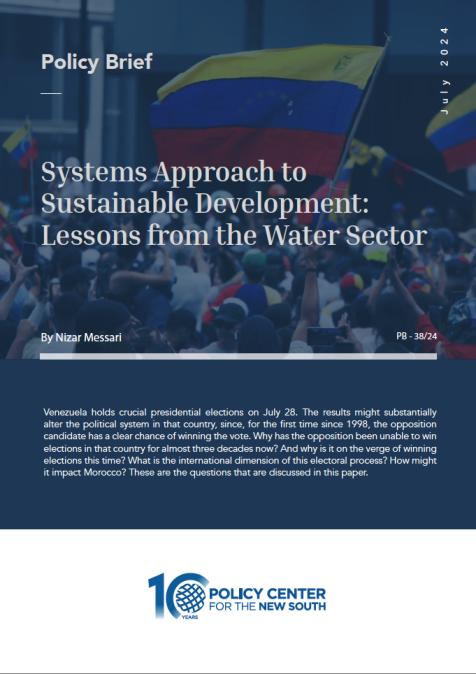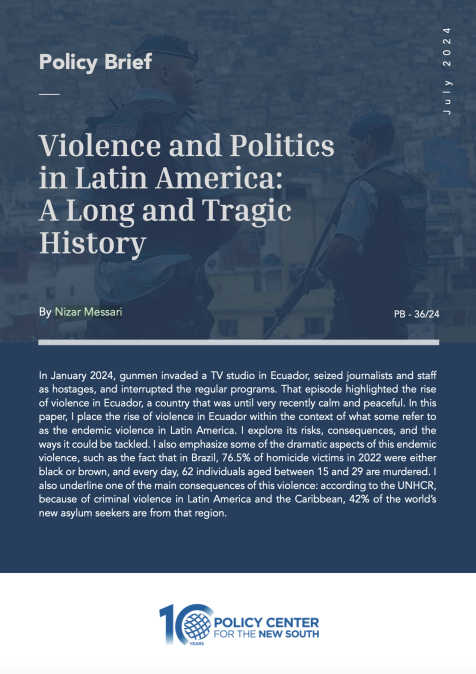Is Brazil back? The question arises from the promise made by president Lula, upon his re-election, that his country would make a return to international affairs, after years of relative isolation during the Bolsonaro administration. While the personality of Lula can play a key role in boosting Brazil’s international profile, some questions remain on the country’s ability to maintain its standing. One of them lies in the strong internal polarization within the country. Pedro Vormittag, chief of staff to the chairman of the Brazilian Center of International Relations and member of the ADEL 2023 cohort, explores some of these issues in this interview.
RELATED CONTENT
-
AuthorsNizar MessariFebruary 24, 2025Latin America was barely mentioned in US President Donald Trump’s 2024 electoral campaign. Expectations were that President Trump would remain uninterested in Latin America, while Latin America would show pragmatism and restraint in its dealings with him. However, surprisingly, Latin American has been at the forefront of Trump’s agenda since his re-election. Aside from migration, which was already prominent in Trump’s electoral campaign, although as an internal issue, there is also ...
-
Lula at Midterm: The G20 Summit in Brazil at the Intersection of Domestic and Foreign Policy AgendasAuthorsNizar MessariDecember 18, 2024The G20 Summit held in November 2024 in Rio de Janeiro, Brazil, under the Brazilian G20 presidency, showed what decentering from the Western agenda and Western domination of world politics could mean. The summit’s main achievement was the constitution of an Alliance against Hunger and Poverty, with a membership of, and funds mobilized from, not only all G20 members, but also from more than 60 other countries. In fact, what the West showed was discomfort at not having its agenda, its ...
-
AuthorsNizar MessariNovember 14, 2024Developments in Venezuela since the presidential election of July 28, 2024, epitomize the fault lines of contemporary world politics. The elections failed to clarify the political situation in Venezuela. Instead, they complicated it. The official electoral authority declared Mr. Nicolás Maduro the official winner of the elections, with a narrow but comfortable margin, while the opposition also declared its candidate, Mr. Edmundo González Urrutia, the legitimate winner of the elect ...
-
AuthorsNizar MessariJuly 26, 2024Venezuela holds crucial presidential elections on July 28. The results might substantially alter the political system in that country, since, for the first time since 1998, the opposition candidate has a clear chance of winning the vote. Why has the opposition been unable to win elections in that country for almost three decades now? And why is it on the verge of winning elections this time? What is the international dimension of this electoral process? How might it impact Morocco? ...
-
AuthorsNizar MessariJuly 24, 2024In January 2024, gunmen invaded a TV studio in Ecuador, seized journalists and staff as hostages, and interrupted the regular programs. That episode highlighted the rise of violence in Ecuador, a country that was until very recently calm and peaceful. In this paper, I place the rise of violence in Ecuador within the context of what some refer to as the endemic violence in Latin America. I explore its risks, consequences, and the ways it could be tackled. I also emphasize some of the ...
-
March 1, 2024Is Brazil back? The question arises from the promise made by president Lula, upon his re-election, that his country would make a return to international affairs, after years of relative isolation during the Bolsonaro administration. While the personality of Lula can play a key role in b...
-
 AuthorsMarianna AlbuquerqueSantiago TheodulozOctober 3, 2023Marianna Albuquerque and Santiago Theoduloz are 2022 alumni of Atlantic Dialogues Emerging Leaders program. Learn more about Marianna here and Santiago here. From our experience of participating in the ADEL Program and the Atlantic Dialogues in 2022, we learned that the Atlantic countries have the potential to improve their economies through regional coordination. This led us to reflect on how many opportunities the countries from the wider Atlantic missed ...
AuthorsMarianna AlbuquerqueSantiago TheodulozOctober 3, 2023Marianna Albuquerque and Santiago Theoduloz are 2022 alumni of Atlantic Dialogues Emerging Leaders program. Learn more about Marianna here and Santiago here. From our experience of participating in the ADEL Program and the Atlantic Dialogues in 2022, we learned that the Atlantic countries have the potential to improve their economies through regional coordination. This led us to reflect on how many opportunities the countries from the wider Atlantic missed ... -
by Hala Boumaiz & Len IshmaelSeptember 01, 2023In this podcast, we are joined by Dr. Len Ishmael, editor and co-author of the book “Aftermath of War in Europe: The West VS. the Global South?”. Dr. Ishmael delves into the groundbreakin ...
-
 AuthorsAugust 29, 2023At the August 22-24 BRICS summit in Johannesburg, the leaders of Brazil, Russia, India, China and South Africa said they wanted to use more of their national currencies for cross-border payments, which are currently dominated by the U.S. dollar and other global convertible currencies. Like China and the other BRICS, several other countries have also sought to develop alternative external payment mechanisms. Pairs of countries have agreed to settle commercial and financial transactio ...
AuthorsAugust 29, 2023At the August 22-24 BRICS summit in Johannesburg, the leaders of Brazil, Russia, India, China and South Africa said they wanted to use more of their national currencies for cross-border payments, which are currently dominated by the U.S. dollar and other global convertible currencies. Like China and the other BRICS, several other countries have also sought to develop alternative external payment mechanisms. Pairs of countries have agreed to settle commercial and financial transactio ... -
Hamza M’jahed and Elena Sanchez-MontijanoJune 09, 2023In this podcast episode, we delve into the complex and diverse topic of migration and integration in Atlantic Latin America. As we explore the historical events and patterns of migration ...








